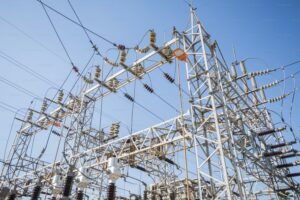The Electricity Department of the Andaman & Nicobar Administration has announced a key update for consumers holding electricity security deposits with the Andaman Nicobar State Cooperative Bank (ANSCB). With approval from the competent authority, consumers now have the option to shift their security deposits to any of eleven solvent public sector banks operating in the islands.
The eligible banks for this transition include State Bank of India, Canara Bank, Indian Bank, UCO Bank, Punjab National Bank, Indian Overseas Bank, Bank of Baroda, Union Bank of India, Central Bank of India, Bank of India, and Bank of Maharashtra.
This move comes in accordance with Section 5.136 of the Joint Electricity Regulatory Commission (JERC) Regulations, 2018, which mandates a yearly review of security deposits based on consumer billing patterns. As per the regulation, the deposit must equal twice the average amount paid in the previous financial year (April to March). The revised deposit, calculated by the respective sub-divisions, may be maintained either through a bank guarantee or by providing a lien against a fixed deposit in one of the approved banks.
Consumers who opt for this transition are required to submit the necessary documentation to the Electricity Department. Upon successful verification and opening of a new security deposit account under the guidelines of Section 5.136, the existing deposit along with accrued interest will be released by ANSCB to the consumer.
The Electricity Department has stated that this shift provides consumers with more flexibility in managing their security deposits and brings the process in line with updated financial practices and regulatory compliance. The move is also likely to reduce dependency on a single cooperative bank, thereby distributing the financial engagement across multiple institutions with wider public oversight.
Officials clarified that this is not a mandatory transition but an additional option provided to consumers. Those satisfied with their current arrangements with ANSCB may continue without making any changes. However, those seeking more competitive interest rates or greater banking flexibility may consider migrating their deposits.
The revised structure is expected to benefit especially commercial and high-consumption consumers who typically hold larger security deposit amounts. By placing these funds in mainstream public sector banks, they may gain better access to banking services, faster turnaround for lien issuance, and more transparent management of interest accrual.
Additionally, the department emphasized that consumers must act proactively if they wish to align their security deposits with the newly assessed requirements. Failure to do so could result in penalties or disconnection, as electricity supply is contingent upon the fulfillment of deposit norms under the JERC rules.
While the announcement did not specify a deadline for making the transfer, consumers have been encouraged to initiate the process soon to avoid last-minute rushes or delays in interest disbursement. Sub-division offices of the Electricity Department will serve as the coordinating points for document submission and compliance verification.
This development reflects the administration’s ongoing efforts to modernize utility-related financial procedures and ensure better consumer rights protection. More announcements related to online tracking and revised billing services are also expected in the coming quarters.
Consumers interested in transferring their deposits have been advised to reach out to their respective sub-divisional officers or visit the Electricity Department for further information and document checklists.





